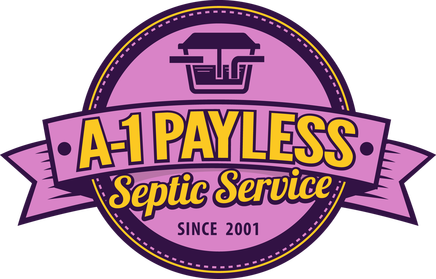Why Maintain Your Septic System
Maintaining Your Septic System...
Saves you money
Regular maintenance fees of $300 to $375 every three to five years is a bargain compared to the cost of repairing or replacing a malfunctioning system, which can cost between $3,700 and up depending on permits needed. Alternative systems can cost even more. The frequency of pumping required for each system depends on how many people live in the home and the size of the system.
Protects your property value
An unusable septic system or one in disrepair will lower your property value, and potentially can pose a costly legal liability. Keeps you and your neighbors healthy. Household wastewater contains disease causing bacteria and viruses and high levels of nitrogen and phosphorus. If a septic system is well-maintained and working properly, it will remove most of these pollutants. Insufficiently treated sewage from septic systems can cause groundwater contamination, which can spread disease in humans and animals. Improperly treated sewage poses the risk of contaminating nearby surface waters threatening swimmers with various infectious diseases, from eye and ear infections to acute gastrointestinal illness and hepatitis.
Protects the environment
More than four billion gallons of wastewater are dispersed below the ground’s surface every day. Ground water contaminated by poorly or untreated household wastewater poses dangers to drinking water and to the environment. Malfunctioning septic systems release bacteria, viruses, and chemicals toxic to local waterways. When these pollutants are released into the ground, they eventually enter streams, rivers, lakes, and more, harming local ecosystems by killing native plants, fish, and shellfish. Learn more about how septic systems can help support greener, more sustainable communities.
Saves you money
Regular maintenance fees of $300 to $375 every three to five years is a bargain compared to the cost of repairing or replacing a malfunctioning system, which can cost between $3,700 and up depending on permits needed. Alternative systems can cost even more. The frequency of pumping required for each system depends on how many people live in the home and the size of the system.
Protects your property value
An unusable septic system or one in disrepair will lower your property value, and potentially can pose a costly legal liability. Keeps you and your neighbors healthy. Household wastewater contains disease causing bacteria and viruses and high levels of nitrogen and phosphorus. If a septic system is well-maintained and working properly, it will remove most of these pollutants. Insufficiently treated sewage from septic systems can cause groundwater contamination, which can spread disease in humans and animals. Improperly treated sewage poses the risk of contaminating nearby surface waters threatening swimmers with various infectious diseases, from eye and ear infections to acute gastrointestinal illness and hepatitis.
Protects the environment
More than four billion gallons of wastewater are dispersed below the ground’s surface every day. Ground water contaminated by poorly or untreated household wastewater poses dangers to drinking water and to the environment. Malfunctioning septic systems release bacteria, viruses, and chemicals toxic to local waterways. When these pollutants are released into the ground, they eventually enter streams, rivers, lakes, and more, harming local ecosystems by killing native plants, fish, and shellfish. Learn more about how septic systems can help support greener, more sustainable communities.












